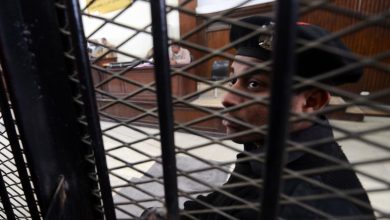Libyan Government Faces New Corruption Scandal Over Overseas Study Scholarships
Allegations Implicate .p Officials in Misallocation of Scholarships to Unqualified Individuals.
Watan-Libya’s corruption crisis is deepening following the revelation of a new scandal shaking Abdul Hamid Dbeibeh’s government. The outgoing Prime Minister and Education Minister Imran Al-Qeeb have been accused of involvement in corruption cases related to overseas study scholarships.
This issue has caused widespread uproar among Libyans, especially after the disclosure of suspicious scholarship decisions that included thousands of undeserving individuals, among them children of officials and influential figures in the government.
The Libyan Coordinators’ Committee revealed that the Education Minister’s decisions encompassed more than 6,000 names, including forgers and children of officials who were unlawfully added to the scholarship lists. Many were also incorporated into lists of war wounded and missing persons, blatantly exploiting humanitarian issues for personal gain. This has sparked a wave of anger among citizens and deserving students who found themselves excluded from these lists.
In response, the Education Minister denied these accusations, stating that he had not added any new names since assuming office. He emphasized that previous decisions require billions of dollars to implement, complicating their execution on the ground.
However, this justification did not quell the widespread criticism directed at the government, as many believe that administrative corruption and nepotism in Libya now threaten the future of students and education in general.

This is not the first scandal to hit Dbeibeh’s government. Previous revelations have exposed scholarship decisions that included undeserving names, among them relatives of officials and government department heads. Entire families have been sent abroad under these decisions, with some families having between 5 to 7 members studying abroad at public expense, reflecting the extent of corruption in this matter.
This comes amid worsening economic conditions in Libya, where citizens face difficulties receiving their monthly salaries due to cash shortages in banks, exacerbating public anger towards Dbeibeh’s government, which faces ongoing criticism over the depletion of national resources and the squandering of budgets through dubious means.
As investigations continue, Libyans are awaiting the actions that will be taken by the relevant authorities to hold those involved in this scandal accountable, amid growing calls to put an end to the corruption hindering the country’s progress and increasing the suffering of its citizens.






